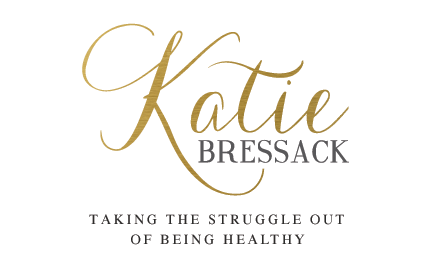What every woman should know about thyroid Health
I was diagnosed with hypothyroidism soon after my first miscarriage about seven years ago, although I’m positive I’ve had issues with my thyroid since childhood. I was always cold, had lots of insomnia, and difficulty coping with stress over the years. Once I was diagnosed I’ve been carefully monitoring the health of my thyroid with blood work every three months, except when I was pregnant and now postpartum where I’ve been going more often to keep my thyroid regulated. I wrote about my postpartum journey here and what I’ve been doing to support my hormones as my thyroid fluctuates between hypo and hyperthyroidism. In our thyroid health 101 post today I’m sharing what I believe every woman should know about thyroid health and some diet and lifestyle shifts to help you support your thyroid.

Thyroid health 101
Our thyroid gland, which is the small, butterfly-shaped gland situated at the base of the front of our neck just below the Adam’s apple, produces hormones triiodothyronine (T3) and thyroxine (T4). Hormones regulate everything in our body, including our mood, sleep patterns and hunger levels and our thyroid regulates our metabolism, body temperature and heart rate – just to name a few of its vital functions in our body. This is why it’s so important to be eating in a way that supports our hormones, especially our thyroid.
If you’re experiencing symptoms such as hair loss, dry skin, brittle hair, low sex drive, PMS, difficulty getting or staying pregnant, depression, excessive menstrual bleeding, chronic colds and unexplained weight gain you might be dealing with thyroid issues.
So many of the women I work with have never had their thyroid tested even though they have struggled with stubborn weight loss, extreme fatigue, hair loss and even depression. Whey they share their struggles over the years on their intake form and during our one-on-one sessions I suggest they call their doctor immediately and request a full thyroid panel among other blood work. You can read more about hormone testing in my hormone testing 101 blog post. It’s vital to get a full thyroid panel done, not just your TSH (thyroid stimulating hormone) to get the entire picture of what might be going on with your thyroid health.
There are two main categories of thyroid disease, hypothyroidism or hyperthyroidism. Hypothyroidism happens when your thyroid isn’t producing enough thyroid hormones and hyperthyroidism is when your thyroid gland is producing too much thyroid hormones. Hyperthyroidism affects about 2% of the US population where hypothyroidism affects every 2 in 100 women and has been on the rise in recent years. Women are eight times more likely than men to have thyroid issues and the most common causes of hypothyroidism in women is the autoimmune disease called Hashimoto’s.
WHEN OUR THYROID ISN’T WORKING PROPERLY IT LEAVES US FEELING UNBALANCED IN OUR BODIES.
Symptoms of hyperthyroidism might include, but not limited to:
- Rapid weight loss
- Feeling nervousness, anxiety and irritability
- Difficulty standing still and have a lot of nervous energy
- Mood swings
- Difficulty sleeping
- Lacking energy all the time
- Sensitivity to heat
- Muscle weakness
- Diarrhea
- Persistent thirst
- Loss of libido (sex drive)
Signs of hypothyroidism might include, but not limited to:
- Exhaustion
- Sensitivity to cold
- Weight gain
- Constipation
- Depression
- Brain fog
- Muscle cramps
- Dry and scaly skin, brittle hair and nails
- Loss of libido
- Irregular periods or heavy periods
As you can see sometimes you might feel a wide range of symptoms so it’s vital to share with your doctor everything you’ve been feeling so that you can get a proper diagnosis.
THYROID TESTS
Reach out to your primary care doctor and ask for a referral to an endocrinologist, they specialize in hormones. You can also reach out to a functional medicine or naturopathic doctor as they usually run additional tests.
If your doctor is just testing your TSH without doing a full thyroid panel it might be challenging to get a proper diagnosis. A full thyroid panel includes the following TSH, Free T4, Free T3, Reverse T3 and TPO and/or thyroid antibodies.
I would also suggest getting your Vitamin D levels checked, if your Vitamin D is low it can block T3 production. Most of us are not in the optimal range of 60-80 mg/ml and are around the 20-30 mg/ml range. Talk to your doctor about the proper supplement dosage and keep an eye on your levels, get them checked at a minimum once a year.
WHAT CAN YOU DO TO SUPPORT YOUR THYROID health 101
You don’t have to wait to get your thyroid test results back before making some health and lifestyle changes to help support your thyroid health. Below are some suggestions to help get you started.
REDUCE EXPOSURE TO TOXINS
On average a woman puts 515 synthetic chemicals on her body every single day without even knowing it, scary right? The European Union has banned over 1,300 chemicals found in cosmetics and the FDA has only banned eight and restricted three here in the United States. Here is a link to the products I use. Chemicals can bind to cells in our immune and endocrine systems, as well as the delicate tissue in our thyroid glands, damaging their function. I share more in my blog post how toxins affect your hormones and I share some simple yet effective ways you can reduce your exposure to toxins. You can also go to the Environmental Working Group website and enter the name of the products you are currently using and it gives it a ranking and explains what ingredients they are concerned with. I found this site to be very helpful when I started to swap out products years ago.
COPE WITH STRESS BETTER
I know that I’m always saying how we need to learn how to cope and manage stress better, because it’s so important. I wish I had a magic wand and I could take stress completely away from you, but that won’t be happening any time soon. Instead incorporate more deep breathing into your day, get your body moving, walks are so beneficial to hormones, get to bed on time and step away from social media as often as possible. Coping and managing stress can be one of the most challenging, yet most effective ways to support your thyroid and overall health.
REDUCE OR AVOID GLUTEN
When I was first diagnosed with hypothyroidism my doctor didn’t share with me any diet and lifestyle shifts that I could make, however over the years she has agreed with me that reducing and eliminating gluten can be one of the best ways to support thyroid health. You can always get tested to see if you have a gluten sensitivity and speak with your doctor about this in more detail, but this is one of the biggest things I’ve noticed over the years is that my thyroid health is better without gluten.
EAT FOR YOUR HORMONES
Our thyroid thrives off of protein, so include lots of plant and animal based protein into your diet. Focus on keeping your blood sugar levels balanced, your body can cope and manage stress better this way. It’s beneficial to focus on healthy proteins, eating within 45 minutes to an hour of waking up and including healthy fats and lots of fiber into your diet. I share in more detail how to eat to support your hormones here.
MOVEMENT
It’s so helpful to move our body, but in a way that’s supportive. If you are feeling exhausted it might not be helpful to do high intensity workouts, instead a long walk might be more beneficial to your health and hormones. Its also beneficial to your thyroid health to move with your cycle. During the first phase of your cycle you can support your hormones with HIIT workouts and then in the second phase of your cycle focus more on yoga, pilates and walking. Take time to listen to your body and move in a way that supports you the most. In this article I share how to work with, not against your hormones with food and movement, it’s a life changing practice that can make a big impact on your hormone health.
IMPROVE YOUR SLEEP
Try to go to sleep and wake up around the same time every day and aim for eight hours of sleep. If you are waking up in the middle of the night feeling wired this can also be a sign that your thyroid is off so please mention this to your doctor. To get a better night’s sleep get off electronics an hour before bed, take magnesium, journal or read to help your brain unwind. I love to sleep and I share nine ways you can get a better sleep tonight in order to support your hormones in this post.
NEXT STEPS for your thyroid health
If you are experiencing any of the symptoms I’ve shared reach out to your doctor and schedule an appointment. I also suggest picking one of the ways you can help to support your thyroid health today and focus on this until it feels like a new habit. Notice how your body is responding to the diet and lifestyle shifts and continue to make small but impactful changes. I’m also here for support, if you’d like to work with me you can sign up for a free 30 minute consultation call.
I’d love to hear your thoughts!
- Was this post helpful for you? Or, do you have any additional questions? Comment below and let me know!
- Share with your friends, forward this along or post on social. You can also join me on Instagram and in my private
- FB groupWant a deeper look into your hormones? Take my quiz to see what foods might be helpful to add into your diet
- Sign up for my newsletter full of women’s health tips and get your FREE guide, the five steps to take today to help balance your hormones
Medical Disclaimer
Information in this post and on this web site is provided for informational purposes only. The information is a result of practice experience and research by the author. This information is not intended as a substitute for the advice provided by your physician or other healthcare professional or any information contained on or in any product label or packaging. Do not use the information on this web site for diagnosing or treating a health problem or disease, or prescribing medication or other treatment. Information and statements regarding dietary supplements have not been evaluated by the Food and Drug Administration and are not intended to diagnose, treat, cure, or prevent any disease. Always speak with your physician or other healthcare professional before taking any medication or nutritional, herbal or homeopathic supplement, or using any treatment for a health problem.

.png)
.png)
.png)
So helpful on my thyroid and pregnancy journey, thank you! Sharing now with two friends who also have hypo.
So happy it’s been helpful for you! Keep me posted on how your thyroid and pregnancy journey goes!